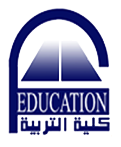With the dominance of the Web in education and English language learning, new literacies have emerged. This thesis is motivated by the assumption that these literacies need to be integrated into the Egyptian pre-service EFL teacher education programmes so that EFL student teachers can cope with the new reality of language teaching/learning. Therefore, the main objective of the present study is to develop a theoretical understanding of the relationship between Web-based new literacies and the teaching of TESOL in a way that supports the possibility of expanding Egyptian pre-service EFL student teachers’ language-related literacy practices by integrating some Web-based new literacies into their education programme, with specific reference to the context of Assiut University College of Education (AUCOE). This requires accomplishing minor objectives represented in: (1) identifying the range of those Web-based new literacies that Egyptian EFL student teachers need in this ICT-dominated age; (2) identifying those Web-based facilities beneficial to them, and why and how they can be beneficial; and (3) generating framework for EFL curriculum design based on both literature and empirical data. To accomplish this, a design-based research (DBR) methodology drawing on a pragmatic epistemology is developed and employed as the main research paradigm informing this design study. Thus, the research design involves a flexible three-stage research framework: (1) the preliminary phase, which acts as a theoretical and empirical foundation for the whole study, and informs a preliminary design framework; it involves reviewing relevant literature and obtaining empirical data through documentary analysis (100 documents), online questionnaire (n=50), and semi-structured interviews (n=19); (2) the prototyping phase that involves two iterations (36 participants in the first iteration, and 30 in the second) conducted in the Egyptian context to test the proposed design framework. Each iteration acts as a micro-cycle of the whole design study, and thus involves its own objectives, learning design, research methodology and procedures (in line with the main DBR methodology), and results; (3) the assessment/reflective phase which, based on the prototyping phase results, presents a final design framework for expanding EFL student teachers’ language-related literacy practices. This has implications for the EFL curriculum design process within the Egyptian context in general, and AUCOE in particular. Results indicate that throughout the two iterations, it has become evident that the process of expanding EFL student teachers’ language-related literacy practices by integrating some Web-based new literacies into the AUCOE pre-service programme is quite feasible once some design principles are considered. Some significant conclusions and educational implications are provided, along with some main contributions to knowledge in TESOL/TEFL, language-learning theory, research methodology, and educational practice as far as the Egyptian context of pre-service EFL teacher education is concerned.
تاريخ البحث
قسم البحث
المشارك في البحث
الناشر
University of Exeter, England, UK
تصنيف البحث
PhD Thesis
موقع البحث
https://ore.exeter.ac.uk/repository/handle/10036/3202
سنة البحث
2011
صفحات البحث
486
ملخص البحث


